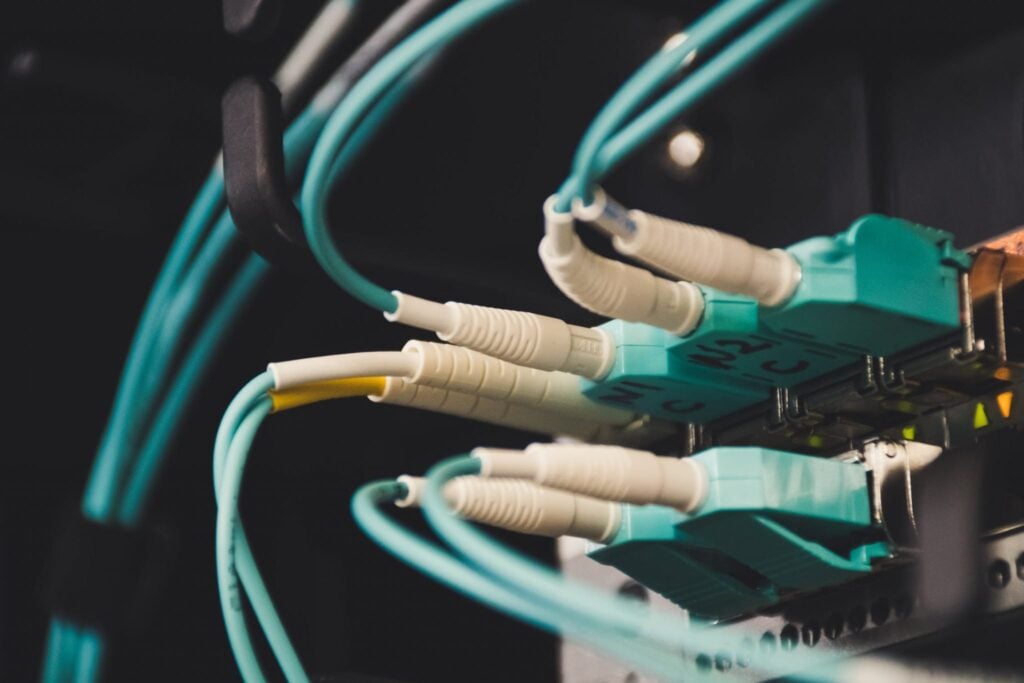Why DHCP is Better Than Static IP Addresses… Even for Servers
Modernize your network infrastructure with DHCP reservations for enhanced reliability and simplified management
Eliminate manual IP conflicts, centralize network control, and reduce administrative overhead while maintaining server reliability
Imagine it’s 2 AM, and you’re troubleshooting a network outage caused by a single, mistyped static IP address. Minutes become hours, downtime mounts, and your team scrambles to pinpoint the source of the error. This scenario isn’t hypothetical—it’s a common reality for IT teams still relying on manual static IP management.
Static IP addresses have traditionally been the go-to for server reliability. They seem straightforward and safe—until your network scales or configuration mistakes slip in. But there’s a better, more efficient way: DHCP reservations.
By adopting DHCP reservations, you can centralize network management, minimize costly human errors, and boost operational resilience. Your team will spend less time managing IP spreadsheets and more time enhancing your infrastructure’s performance.
What’s the Difference Between Static IPs and DHCP?
At the core of network management are two primary methods for assigning IP addresses to devices: static IP addresses and Dynamic Host Configuration Protocol (DHCP).
A static IP address is manually assigned to a device and remains constant. It’s often used for critical infrastructure—like servers, routers, or firewalls—because it ensures predictability. Each device has its address individually configured by an administrator, typically tracked in spreadsheets or network documentation.
In contrast, DHCP automatically assigns IP addresses from a predefined pool each time a device connects to the network. This approach significantly reduces manual configuration and administrative overhead.
💡 Key Insight: DHCP reservations assign a specific IP address consistently to the same device, based on its MAC address. This combines the predictability of static addressing with the convenience and manageability of DHCP.
Traditional Reasons for Using Static IPs on Servers
Static IP addresses have long been the default choice for servers, and for good reasons. Stability is typically the most cited advantage: when a server maintains the same IP address indefinitely, administrators can confidently configure firewalls, DNS entries, and monitoring systems without worrying about unexpected changes.
- Predictable addressing for firewall rules and access controls
- Simple initial setup for smaller networks
- Legacy software compatibility that requires static configurations
- Perceived control through manual documentation and spreadsheets
However, this seemingly simple approach quickly becomes challenging as networks grow larger, evolve dynamically, or expand into cloud and hybrid environments. Static IP management becomes cumbersome, error-prone, and less scalable.
Why DHCP with Reservations Is a Better Modern Practice
While static IP addressing may feel familiar and comfortable, modern networks are increasingly complex, requiring greater flexibility, efficiency, and reliability. DHCP with reservations provides an ideal balance, retaining the predictability of static IP addresses while reducing manual administrative tasks and human error.
Key Benefits of DHCP Reservations
- Centralized Management: DHCP servers act as the central authority, maintaining a definitive list of IP assignments
- Reduced Human Error: Automated assignment significantly decreases the risk of duplicate addresses and typos
- Simplified Scalability: Adding, removing, or relocating devices no longer demands manual IP tracking
- Enhanced Integration: Seamless integration with DNS servers and managed IT services
- Configuration Consistency: Ensures uniform configuration, essential for compliance and operational efficiency
🎯 Pro Tip: DHCP reservations modernize network management by combining reliability with operational efficiency. This approach can save considerable resources, reduce downtime, and simplify troubleshooting.
Addressing Common Concerns About DHCP
Despite the clear benefits of DHCP reservations, some IT teams remain hesitant to adopt DHCP broadly, particularly for servers. Let’s address the most common concerns directly:
Myth: “DHCP introduces the risk of IP addresses changing unexpectedly”
Reality: DHCP reservations eliminate this risk entirely. When a reservation is set, the IP address remains consistent every time the device requests it, just like a static assignment.
Myth: “A DHCP server creates a single point of failure”
Reality: Modern networks easily mitigate this by deploying high-availability DHCP solutions. Technologies such as DHCP failover or clustered DHCP servers ensure continuous, reliable service.
Myth: “Static IP addresses are simpler and easier to manage”
Reality: This holds true only in very small environments. As your network expands, static IP management quickly becomes overwhelming and error-prone. Centralized DHCP reservations significantly simplify IP tracking and assignment at scale.
When Static IPs Still Make Sense
While DHCP reservations generally offer significant advantages, there are still specific cases where static IP addressing remains the best practice:
- Out-of-Band Management Interfaces: iDRAC, iLO, or management consoles for emergency access
- Essential Network Infrastructure: DHCP servers themselves, DNS servers, and default gateway routers
- Cloud and Virtualization Platforms: OpenStack management nodes and control-plane servers
- Emergency Access Scenarios: Critical recovery situations where DHCP services may be unavailable
- Temporary or Isolated Environments: Short-term labs where DHCP deployment isn’t practical
⚠️ Important: Using static IPs for essential infrastructure prevents circular dependencies and ensures fundamental services remain stable and available during network emergencies.
Best Practices for DHCP in Server Environments
To effectively deploy DHCP reservations for your servers, follow these proven best practices:
- Use DHCP Reservations: Always use reservations for critical servers rather than allowing fully dynamic assignment
- Ensure High Availability: Deploy DHCP servers with failover pairs or clustering technologies
- Integrate with DNS and Inventory: Connect DHCP with DNS for consistent lookups and asset management systems
- Document Everything: Maintain clear documentation of reservations, MAC addresses, and usage purposes
- Implement Security: Apply role-based access controls and monitor for unauthorized changes
- Regular Auditing: Conduct periodic reviews with professional network assessments
Conclusion
The days of relying exclusively on static IP addresses for your server infrastructure are evolving. While static IPs have traditionally offered simplicity and stability, modern networking practices and increasing complexity highlight the value of DHCP reservations as a superior approach for many scenarios.
By embracing DHCP reservations, you gain centralized control over IP assignments, drastically reduce the potential for human error, and simplify the process of scaling your infrastructure. You’ll spend less time troubleshooting IP conflicts and more time focusing on proactive network optimization and innovation.
Ultimately, reconsidering your traditional approach to IP addressing will yield increased efficiency, reliability, and operational excellence. Evaluate your network’s current practices, identify opportunities for improvement, and start leveraging DHCP reservations as part of your modernization strategy today.
Elevate Your IT Efficiency with Expert Solutions
Transform Your Technology, Propel Your Business
Ready to modernize your network infrastructure with DHCP reservations and other proven best practices? InventiveHQ’s expert IT consultants can help you optimize your network for enhanced security, reliability, and scalability while reducing administrative overhead.

